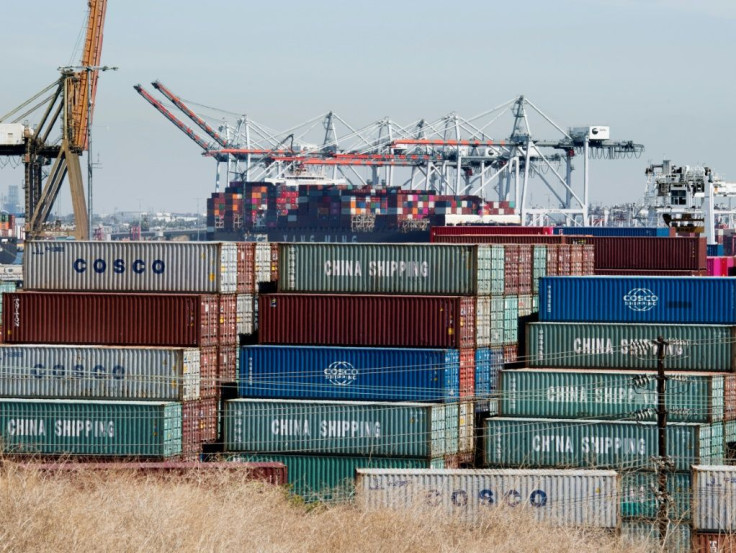Trade Tensions Slam Brakes On Global Economy: OECD

Escalating trade tensions are eroding global growth prospects, with the world economy set for its slowest expansion since the global financial crisis, the OECD warned on Thursday.
In an update to its economic forecasts from May, the Organisation for Economic Co-operation and Development cut its global growth forecast for this year to 2.9 percent from 3.2 percent.
The prognosis for 2020 was lowered to 3.0 percent from 3.4 percent.
"These would be the weakest annual growth rates since the financial crisis, with downside risks continuing to mount," said the 36-member organisation.
The International Monetary Fund already lowered its own global forecasts in July in face of the long-running -- and bruising -- trade war between the United States and China, the world's number one and two economies respectively.
"Our fear is that we are entering an era where growth is stuck at a very low level," said Laurence Boone, the OECD's chief economist.
"All those risks that we have highlighted are really bringing us into a dangerous territory for growth and obviously for jobs," she added.
Growth prospects for almost all of the Group of 20 countries were revised down by the OECD, particularly those exposed to declining global trade and investment.
'Urgent' collective effort'
"Escalating trade policy tensions are taking an increasing toll on confidence and investment, adding to policy uncertainty, weighing on risk sentiment in financial markets, and endangering future growth prospects," the OECD wrote.
The US economy was now expected to expand by 2.4 percent this year, a downward revision of 0.4 percentage points from the May forecast, and significantly slower than the 2.9 percent recorded last year.
The 2020 forecast was cut by 0.3 percentage points to 2.0 percent.
Chinese growth was expected to slow to 6.1 percent in 2019, a downward revision of 0.1 point, while next year's forecast was cut by 0.3 points to 5.7 percent.
The OECD said "collective effort is urgent to halt the build-up of trade-distorting tariffs and subsidies and to restore a transparent and predictable rules-based system that encourages businesses to invest".
It revised down its 2019 forecast for the 19-country eurozone to 1.1 percent growth this year and 1.0 percent in 2020, whereas previously it had been expecting activity in the single currency area to pick up speed.
Britain's growth outlook was also lowered as uncertainty over Brexit persists, with the OECD now pencilling in expansion of 1.0 percent this year and 0.9 percent in 2020, compared with 1.4 percent last year.
"A no-deal exit would be costly in the near-term, potentially pushing the United Kingdom into recession in 2020 and reducing growth in Europe considerably," the OECD warned.
© Copyright AFP 2024. All rights reserved.




















